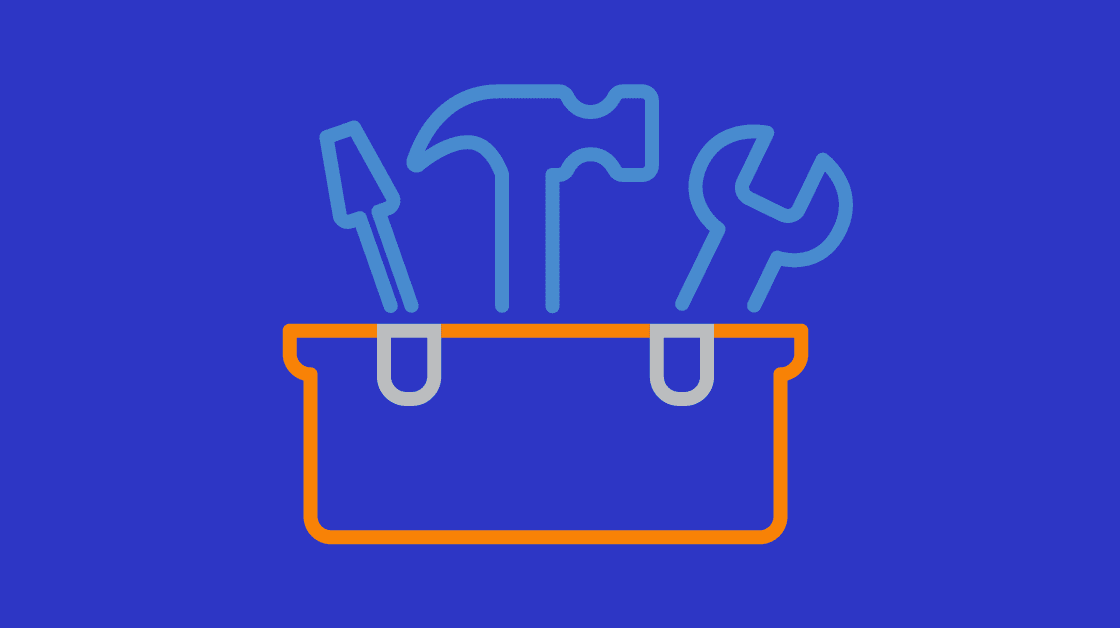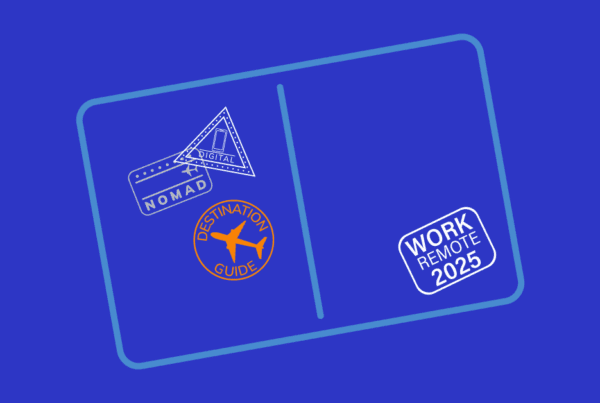
For many freelancers, the decision to become an independent contractor happens at one of two of life’s most common crossroads: graduating from college or after spending some time working in a drab cubicle. These two intersections also represent the crux of an all too prevalent question, “Is education or experience more important?” Maybe the actual answer is “both.”
Education: The Solid Foundation
When it comes to working as flexible talent, the symbiotic relationship between education and experience stands as a pivotal cornerstone. In the ever-evolving landscape of the gig economy, where opportunities are abundant but competition is fierce, a balanced blend of education and hands-on experience can set flexible talent on a trajectory toward success. While the allure of self-employment may seem like a shortcut to bypassing traditional education and starting a life with a laptop and a cocktail on the beach, the reality is that a solid educational foundation lays the groundwork for longevity, versatility, and adaptability – traits that are invaluable in a world where tasks and industries transform rapidly.
Clients seeking freelancers aren’t merely looking for individuals who can complete tasks; they are seeking partners who can seamlessly integrate into their projects, understand their needs, and contribute unique value. Education brings essential theoretical knowledge and critical thinking to the table. It often allows freelancers to approach challenges from a strategic standpoint, identify patterns, and devise innovative solutions. This educational depth lends credibility and a sense of assurance to clients, as it showcases a commitment to continuous learning and a dedication to honing one’s craft.
However, education alone isn’t sufficient to thrive in today’s gig economy. Experience, like the crucible of real-world challenges, refines skills and builds a practitioner’s toolkit. Hands-on experience fosters adaptability by exposing freelancers to a diverse range of scenarios, enabling them to troubleshoot, improvise, and tailor their approach according to unique project requirements. Clients are drawn to contract workers who possess practical expertise, as experience translates theoretical knowledge into actionable results. Flexible talent with a portfolio of successfully completed projects signifies reliability, the ability to meet deadlines, and the know-how to navigate industry intricacies.
When selecting flexible talent, potential clients are discerning in their evaluation process. They seek professionals who not only demonstrate a solid educational foundation and a rich repository of experience but also showcase attributes like effective communication, problem-solving prowess, and a proactive approach. Clients value flexible talent who can articulate their ideas, clarify expectations, and engage in open dialogue throughout the project’s lifecycle. Problem-solving abilities are highly prized, as freelance talent often encounter unforeseen challenges that demand quick and creative resolutions. Furthermore, clients appreciate freelancers who take the initiative to understand their project’s context, ask pertinent questions, and demonstrate a genuine interest in their goals.
Many agree that a proper blend of education and experience forms the bedrock upon which a successful freelance career is built. While education equips flexible talent with essential knowledge and strategic thinking, experience hones practical skills and fosters adaptability. Clients in the gig economy seek to contract with workers who strike a balance between these two realms, valuing a holistic approach that marries theoretical expertise with real-world acumen. As the gig economy continues to evolve, freelancers who invest in their education, amass practical experience, and cultivate interpersonal and problem-solving skills position themselves not only as task completers but as indispensable partners in clients’ journeys toward success.
Comparing Education and Experience: An Intentional Blend
While both education and experience are vital components of a freelancer’s skill set, it’s essential to understand the nuanced differences between the two and the advantages each brings to the table.
Education: Theoretical Backbone and Solid Foundation
Education forms the first pillar of the freelancer’s toolkit, playing a pivotal role in shaping a well-rounded skill set. A substantial educational background equips freelancers with essential theoretical knowledge and critical thinking abilities, enabling them to approach challenges strategically, identify patterns, and devise innovative solutions. The depth of education not only fosters intellectual growth but also lends credibility and assurance to clients, as it demonstrates a commitment to continuous learning and a dedication to honing one’s craft.
Education serves as the theoretical backbone that equips contract workers with foundational knowledge and critical thinking skills. The advantages of education in freelancing include:
- Credibility: Education showcases a commitment to continuous learning and a dedication to honing one’s craft.
- Assurance to Clients: Clients feel more confident working with freelancers with strong educational backgrounds.
- Versatility: A solid educational foundation provides versatility and adaptability, enabling flexible talent to pivot to new challenges and industries.
However, education has its limitations, often lacking the practical experience necessary to address real-world challenges effectively.
Experience: Practical Adventure a Branding Iron of Refinement
On the other side of the spectrum, experience forms the second pillar of the freelancer’s toolkit, bringing practical skills and real-world acumen into the mix. Experience refines these skills and fosters adaptability by exposing freelancers to diverse scenarios, enabling them to troubleshoot, improvise, and adaptivly tailor their approach according to project requirements. Clients are drawn to flexible talent who possess practical expertise, as experience transforms theoretical knowledge into actionable results. A freelancer with a portfolio of successfully completed projects signifies reliability, the ability to meet deadlines, and the expertise to navigate industry intricacies.
Experience is the gauntlet through which theoretical knowledge is transformed into practical skills. The advantages of experience in freelancing include:
- Experiential Expertise: Experience translates theoretical knowledge into actionable results.
- Reliability: A portfolio of completed projects signifies a contractor’s ability to meet deadlines and navigate industry intricacies.
- Problem-Solving Skills: Real-world experience equips flexible talent with the ability to creatively address challenges that may arise during projects.
Despite its practicality, experience may sometimes lack the depth of theoretical knowledge that can provide a strategic advantage in complex projects.
Continued Education: An Update to the FreelanceOS
In the ever-evolving landscape of the gig economy, the journey of a freelancer is akin to a perpetual learning adventure – or, maybe, it is more similar to the software that powers your mobile devices. If a contract worker is running their lives on FreelanceOS, upskilling is that clever patch, fix, or update that gets downloaded every now and again to keep things up to date. While a solid educational foundation provides the initial framework, and experience hones those theories into skills, the importance of continued education and upskilling becomes the lifeline that propels freelancers toward sustained success. FreelanceOS 10-point-two-point-one, if you will. The dynamic nature of industries and the rapid pace of technological advancements demand that freelancers embrace continuous learning as an integral part of their professional journey.
Leaning on the foundation of education, coupled with the expanded expertise provied by the trials by fire of experience, upskilling and continuing education offer an even higer degree of appeal to potential clients, including:
- Lifelong Learning: Staying relevant and informed shows customers that a freelancer is passionate about their skill sets and the advancements in their field.
- Enhanced Self-Brand: By upskilling, a contract worker demonstrates they are willing to go beyond the constraints of traditional education and actively seek self-improvement opportunities.
- Thought Leader: Continued education not only allows a freelancer to adapt to the latest tools and platforms but shows customers that the freelancer is at the forefront of their discipline and has the strategic mindset – as well as the network of other professionals – to ensure a successful resolution to the project or problem at hand.
Education Plus Experience: The Well-Rounded Freelancer
To excel in the gig economy, freelancers often find that blending education and experience is the key to a well-rounded skill set. The ability to harmonize theoretical knowledge with practical expertise and a lifelong committment to continued learning is what sets freelancers apart in a competitive landscape. Here are some ways in which the fusion of education and experience enhances a freelancer’s capabilities:
- Strategic Versatility: A well-rounded freelancer can approach challenges with both a strategic mindset and practical skills, making them adaptable to a wide range of projects.
- Informed Decision-Making: The blend of education and experience allows freelancers to make informed decisions by drawing from their theoretical knowledge and practical insights.
- Problem-Solving Prowess: Combining theoretical thinking with updated knowledge and practical experience empowers flexible talent to navigate roadblocks with a relevant, creative approach and find innovative, cutting-edge solutions.
In essence, the path to freelancing success often involves a balanced combination of past and current education with experience, creating a dynamic skill set that is not just adaptable but also forward thinking. Staying abreast of new technologies, skills, and trends in your discipline is synonomous with staying sought-after by clients looking for a relevant solution partner. Freelancers who can seamlessly integrate the best of both worlds position themselves as valuable partners for clients looking for well-rounded expertise.
The Gig Economy is a Thriving Ecosystem
As we navigate further into the vast landscape of the gig economy, it becomes evident that it is more than just a transient trend; it’s a booming ecosystem. Here, autonomy, flexibility, and a plethora of opportunities redefine the traditional contours of work. Central to succeeding in this landscape is the freelancer’s toolkit—a collection of skills that extends beyond the periphery of job tasks and delves into the realm of mindset, versatility, and proficiencies that lead not just to survival but become the touchstones to fully flourishing.
The Art of Versatility: Adapting and Evolving
At the heart of the the contract work dynamic lies the demand for versatility. Freelancers are modern-day chameleons required to seamlessly transition between tasks and industries. Yet, this isn’t a mechanical feat but an art that requires a blend of curiosity and a quick grasp of new concepts. Embracing the unknown with an open mind, freelancers embody the essence of adaptability, embodying the philosophy that every task is an opportunity to learn and contribute.
In this ever-changing landscape, a freelancer’s ability to adapt and evolve is like the compass guiding them through uncharted territory. It’s not just about mastering a single skill; it’s about embracing the opportunity to broaden one’s horizons, take on diverse challenges, and emerge more robust and versatile.
Empathy-Driven Communication: Building Bridges Digitally
The gig economy thrives on remote interactions, making effective communication an essential skill. However, moving beyond mere transactional exchanges, freelancers must master empathy-driven communication. By infusing warmth, understanding, and personal connection into digital conversations, contract workers build trust and forge relationships that extend beyond the virtual realm. This human touch sets them apart and lays the foundation for long-term partnerships.
In a world where virtual interactions often lack the warmth of face-to-face meetings, freelancers who can bridge the gap through empathetic communication stand out. They become the trusted collaborators that clients turn to repeatedly, knowing that their projects are in capable and caring hands.
Creative Problem Solving: Redefining Challenges
Freelancers often face challenges that defy conventional solutions. The ability to creatively navigate these roadblocks becomes a hallmark of success. Creative problem-solving is the vehicle through which freelancers reshape industries and carve their unique niche. It involves thinking outside the box, embracing unconventional perspectives, and developing solutions that revolutionize how work is approached.
Today, every project is essentially a puzzle waiting to be solved. Flexible talent who embrace creative problem-solving not only deliver exceptional results but also leave a lasting impression on their clients. They become the go-to experts for projects that demand innovative thinking.
Business Acumen: Navigating the Entrepreneurial Realm
Thriving in the gig economy requires a multifaceted understanding of business dynamics. Freelancers are not just doers; they are entrepreneurs managing their brand. From setting competitive prices to managing finances and negotiating contracts, a firm grasp of business principles becomes their compass in uncharted waters. This skill isn’t merely about survival; it’s about positioning oneself for strategic growth.
Every freelancer is a business in themselves. Understanding the ins and outs of business, from financial management to marketing, is essential for long-term success. Flexible talent who master this skill find themselves persisting and prospering in the competitive landscape.
Time Alchemy: Mastering the Hours
Time management is a skill that can define a freelancer’s trajectory. The ability to prioritize tasks, set boundaries, and maintain a healthy work-life balance requires a delicate blend. It’s more than just managing tasks; it’s about orchestrating a symphony of productivity that harmonizes with personal well-being. Flexible talent who can balance the clock find themselves achieving not only professional success but also personal fulfillment.
Time is a freelancer’s most precious resource. Those who master the art of time management are able to achieve more in less time, allowing them to take on more projects, enjoy a better work-life balance, and reach new heights in their careers.
Networking Fusion: Building Connections with Purpose
Networking in the modern business landscape goes beyond the mere exchange of business cards; it’s about creating meaningful relationships that transcend transactions. A solid professional network isn’t just a pool of potential clients; it offers mentorship, collaborative opportunities, and a safety net during challenging times. Freelancers who fuse networking with purpose discover a support system that propels them forward.
In the dynamic and interconnected world of freelancing, relationships matter. Those who build purposeful connections find not only opportunities but also a community of like-minded professionals who can offer guidance and support.
Resilience Reinvented: Bouncing Back Stronger
Freelancing isn’t always a smooth sail. It demands resilience in the face of uncertainty, setbacks, and even instability. The ability to rebound from adversity with newfound insights and vigor is a hallmark of a thriving freelancer. Pliability isn’t just about enduring; it’s about adapting, growing, and using challenges as stepping stones toward more significant accomplishments.
For Flexible Talent, resilience is the secret to long-term success. Freelancers who bounce back from setbacks emerge stronger, more experienced, and better equipped to tackle future challenges. In the toolkit of essential skills for thriving, resilience is the key to flourishing, not just surviving.
Data-Driven Decision Making: Unveiling Insights
In an era driven by data, Flexible Talent who possess the ability to interpret and draw insights from information hold a significant advantage. Data intuition isn’t about being a data scientist; it’s about making informed decisions by transforming raw data into actionable insights. This skill transforms freelancers from task executors to strategic partners, enhancing their value proposition.
In 2017, Jim Barbaresso (head of Intelligent Transportation Systems at HTNB) said, “Data is the currency of the digital age.” More than 6 years later, that is true now more than ever. Contractors who can harness the power of data and uncover valuable insights become indispensable partners to their clients. They don’t just complete tasks; they help shape strategies and drive success.
Lifelong Learning: Embracing Change
In today’s dynamic marketplace, learning is a lifelong journey. Freelancers who embrace this path not only stay relevant but become the thought leaders and innovators of their industries. They are the ones who drive change and shape the future.
Flourishing as Flexible Talent
Prospering as a freelancer isn’t just about fighting the good fight for one more day, day after day; it’s about sculpting a career journey that is fulfilling, impactful, and resilient in the face of change. By embracing this toolkit, freelancers transcend the boundaries of traditional work, setting forth on a path of boundless opportunities and enduring success.
As Flexible Talent continue to navigate the exciting, ever-changing patchwork of today’s business world, these essential skills for thriving will prove indispensable, helping freelancers succeed and excel. So, whether you’re a seasoned freelancer or just starting on your journey, remember to continually hone your skills, foster your creativity, and embrace adaptability to build a flourishing freelance career in this dynamic digital age.




